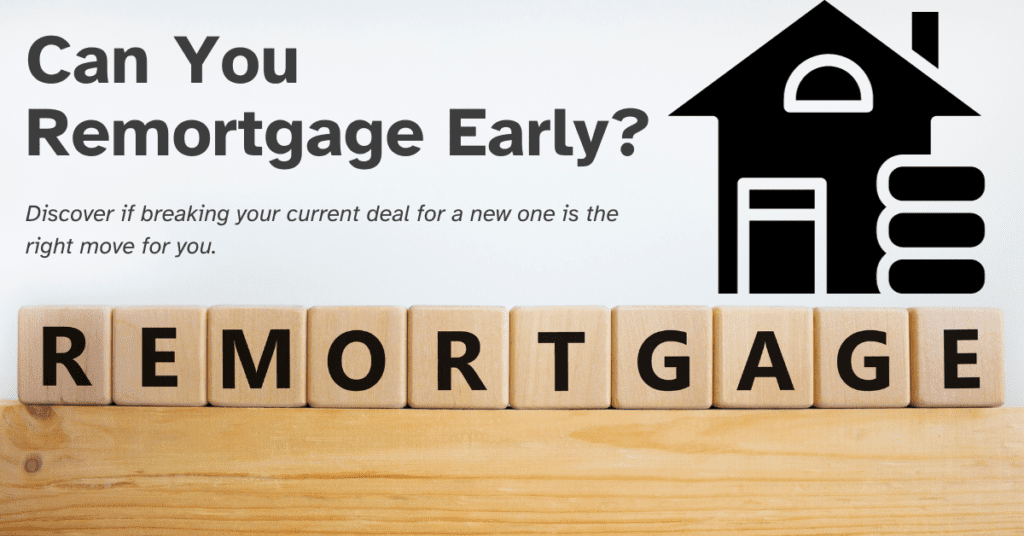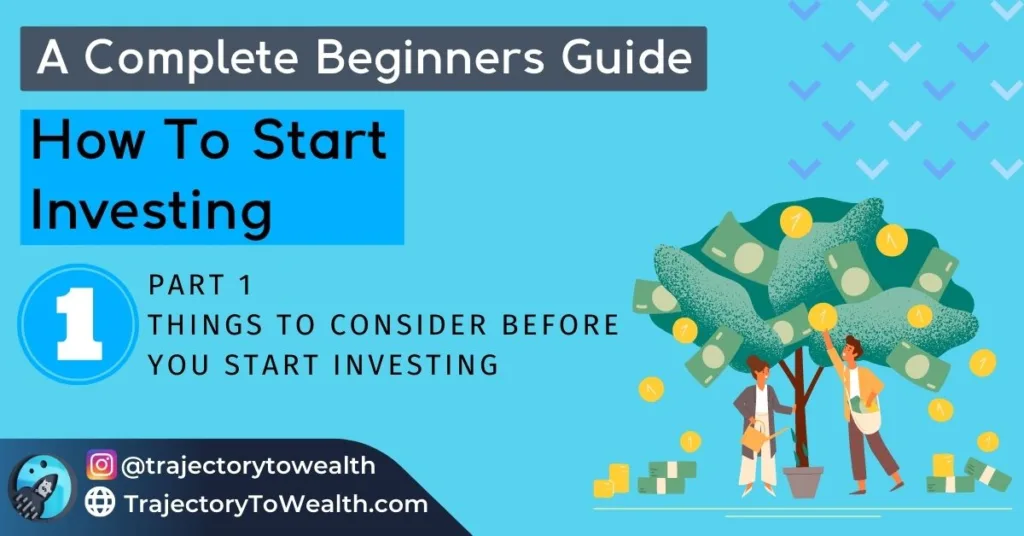Explore the pros and cons of remortgaging early and discover how to navigate the complexities of switching your mortgage deal. Make an informed decision that aligns with your financial goals.
Introduction
The joys of homeownership! One moment you’re celebrating the fact that you’ve finally secured a mortgage deal that doesn’t make your wallet cry. The next, you’re bombarded with advertisements for new mortgage deals that promise lower interest rates and better terms.
It’s like dating, isn’t it? You’re committed, but you can’t help but wonder, “Is there something better out there?” This brings us to the million-dollar question: can you remortgage early to jump onto a new deal, or should you stick with your current deal?
In this comprehensive guide, we’ll explore the ins and outs of remortgaging early, so you can make an informed decision that aligns with your financial goals.

Fixed-Term vs. Variable Rate: What's the Difference and Why It Matters
When it comes to mortgages, you’ll often hear terms like “fixed rate” and “variable-rate mortgage” thrown around. But what do they really mean, and how do they impact your quest for a better interest rate? Let’s break it down.
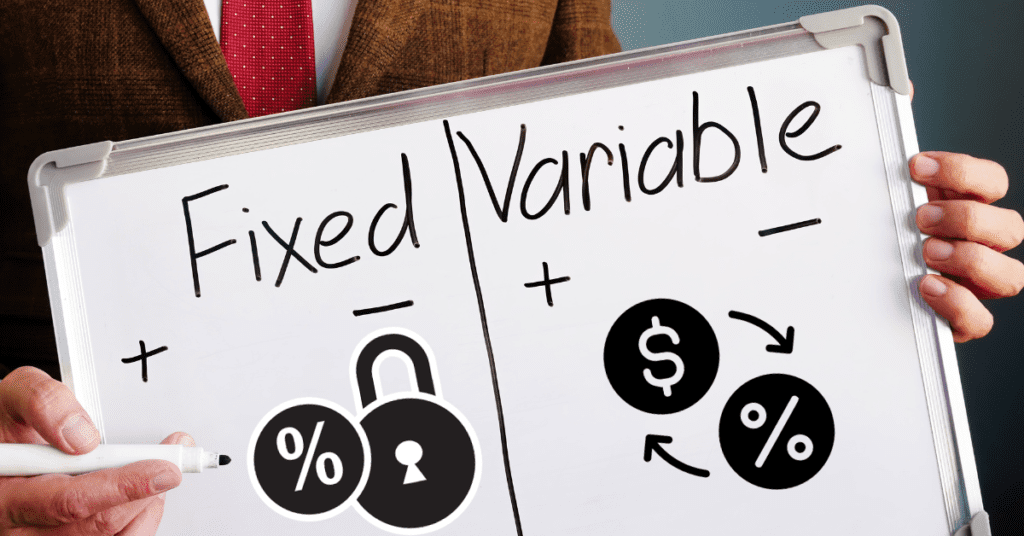
Fixed Rate Mortgage
A fixed-rate mortgage is pretty much what it sounds like—a mortgage where the interest rate remains constant for a set period, usually between 2 to 10 years. This means your mortgage repayments will be predictable, allowing you to budget with ease. However, if interest rates drop, you could find yourself paying a higher interest rate compared to the market.
Variable-Rate Mortgage
On the flip side, a variable-rate mortgage has an interest rate that can fluctuate based on market conditions. This could be a double-edged sword. On one hand, you could benefit from a better interest rate if the rates drop. On the other, if rates rise, so will your mortgage repayments.
Which One is Right for You?
Choosing between a fixed rate and a variable-rate mortgage often comes down to your financial situation and your tolerance for risk. If you prefer stability and predictability, a fixed-rate mortgage might be the way to go. But if you’re willing to ride the waves of the market in hopes of landing a better interest rate, a variable-rate mortgage could be your ticket.
This foundational knowledge will help you better understand the intricacies of remortgaging early, especially as we delve into topics like early repayment charges and potential savings. So, keep these key points in mind as we navigate the complex world of remortgaging.
Why Consider Remortgaging Early?
So, you’ve got a fixed-term mortgage, and you’re wondering if it’s worth breaking free before the term is up.
Trust me, you’re not alone. Many people ponder this question, especially when they hear whispers of new mortgage deals with tantalizingly lower interest rates. But it’s not just about interest rates; sometimes, life throws curveballs that make us reevaluate our financial situation.
Maybe you’re planning some home improvements, or perhaps you’ve had a change in your financial circumstances. Let’s dive into why you might consider remortgaging early.
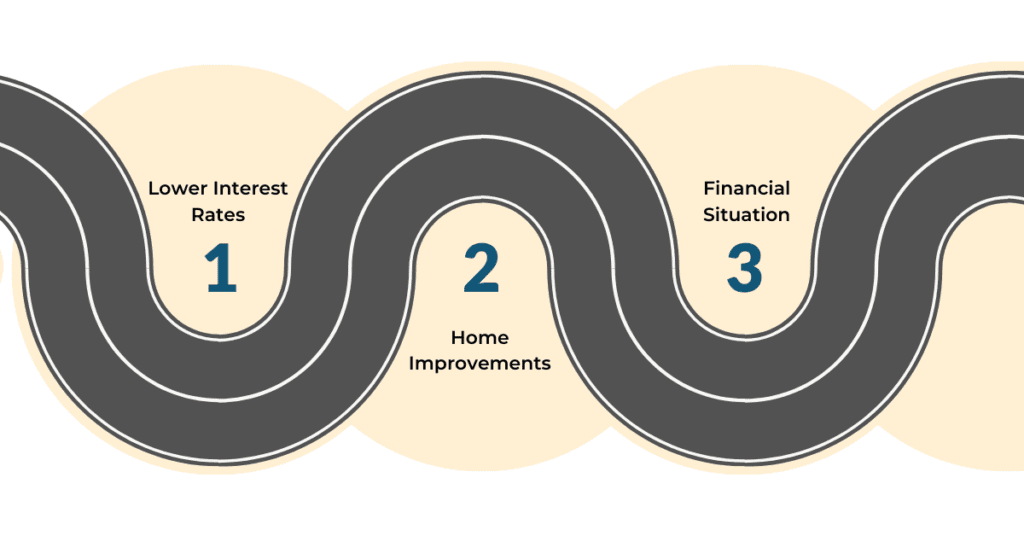
Lower Interest Rates
One of the most compelling reasons to consider a new mortgage deal is the prospect of lower interest rates. Imagine shaving off a percentage point or two from your current mortgage rates. Over time, that could translate to significant savings.
The Pros and Cons
The allure of the best deal on the market can be appealing! It’s like spotting a designer handbag on sale—you’re tempted, but you wonder, “Is it worth it?”
Remortgaging early can offer some juicy potential savings, but it’s not without its pitfalls, such as early repayment charges.
Let’s weigh the pros and cons, shall we?
Best Deal
Who doesn’t love a good bargain? Remortgaging early can help you snag the best deal out there, especially if interest rates have dropped since you locked in your original mortgage.
Potential Savings
Switching to a mortgage with a lower interest rate can lead to substantial savings over the life of the loan. It’s like finding a $20 bill in an old pair of jeans—unexpected but oh-so-welcome.
Financial Conduct Authority Guidelines
The Financial Conduct Authority (FCA) has guidelines to ensure that lenders treat customers fairly. This means you have some level of protection when you decide to switch.
Early Repayment Charge
The flip side of the coin is the dreaded early repayment charge. This fee can eat into any potential savings you might gain from a new deal, so it’s crucial to calculate this cost before making a move.
Financial Conduct Authority Guidelines
Yes, the FCA is here again, but this time as a con. While they do protect consumers, their guidelines can also make the remortgage process more cumbersome, requiring additional checks and balances.
Understanding Early Repayment Charges
So, you’re eyeing that new mortgage deal like a kid in a candy store. But wait, what’s this? Early repayment fees? Let’s dive into this often-overlooked aspect that could be the party pooper in your remortgage celebration.
What Are Early Repayment Fees?
Early repayment fees are charges that some mortgage lenders impose if you decide to break free from your current mortgage deal before the term ends. Think of it as the “exit fee” for leaving the party early. These fees can vary significantly among lenders, so it’s crucial to read the fine print.
The Role of Mortgage Lenders
Mortgage lenders are like the gatekeepers of your financial freedom. They set the rules, including those pesky early repayment fees.
Some lenders might offer a ‘product transfer’ option, allowing you to switch to a different mortgage product within their portfolio without incurring these fees. Handy, right?
Exit Fee vs. Early Repayment Fee
An exit fee is a separate charge that you might have to pay when you completely close your mortgage account, while early repayment fees are specific to breaking your current deal.
Knowing the difference can save you from unpleasant surprises.
How to Find the Best Deal
So, you’ve navigated the labyrinth of early repayment fees and you’re still keen on remortgaging early. Now comes the fun part—shopping for the best rates and mortgage offers. It’s like hunting for treasure, and who doesn’t love that? Let’s get into the nitty-gritty of finding the best deal.
Consult a Mortgage Adviser
First things first, consider seeking advice from a mortgage adviser. They’re the Yodas of the mortgage world, guiding you through the galaxy of best rates and offers. They can help you understand the nuances between your current lender and potential new lenders, and give you more insight into your remortgage options.
Compare Mortgage Offers
Don’t just settle for the first shiny object you see. Compare mortgage offers from different lenders to ensure you’re getting the best bang for your buck. Your current lender might even offer a competitive new rate to keep you from jumping ship.
New Lender vs. Current Lender
The age-old dilemma – should you stick with your current lender or venture into the unknown with a new lender? Each has its pros and cons. A new lender might offer lower rates, but your current lender could offer a seamless product transfer, making the process smoother.
Look for the Best Rates
This is where your mortgage adviser can really shine. They can help you sift through the plethora of rates to find the one that suits your financial situation best. Remember, the lowest rate doesn’t always mean it’s the best deal when you factor in fees and other costs. You don’t want to end up increasing your monthly repayments after a switch, and a mortgage advisor can help ensure that doesn’t happen.
The Remortgage Process Explained
How does one navigate the maze that is the remortgage process? Don’t worry; I’ve got your back. Let’s walk through the steps together, shall we?
Assess Your Monthly Payments
Before you dive into the remortgaging process and lock in on a new fixed-rate mortgage deal, take a good look at your current monthly payments. Knowing what you’re currently paying will give you a baseline for comparison as you shop around for new mortgage deals.
Factor in Arrangement Fees
The dreaded arrangement fee. This is a one-time charge by your new lender to set up a new mortgage product. It can vary widely, so make sure you’re not getting a lower monthly payment only to be hit with a high arrangement fee.
Don’t Forget Valuation Fees
Your new lender will want to assess the value of your home to determine how much they’re willing to lend you. This usually involves a valuation fee. Some lenders offer free valuations as part of their mortgage offers, so keep an eye out for those.
Legal Fees: The Necessary Evil
You’ll also need to budget for legal fees. This covers the cost of transferring the mortgage deed from your current lender to your new one. Some lenders offer free legal work as part of their remortgage package, so that’s another thing to consider.
Finalize the Deal
Once you’ve crunched all the numbers and are happy with the terms, it’s time to finalize the deal. Make sure to read all the fine print and consult your mortgage adviser before signing on the dotted line.
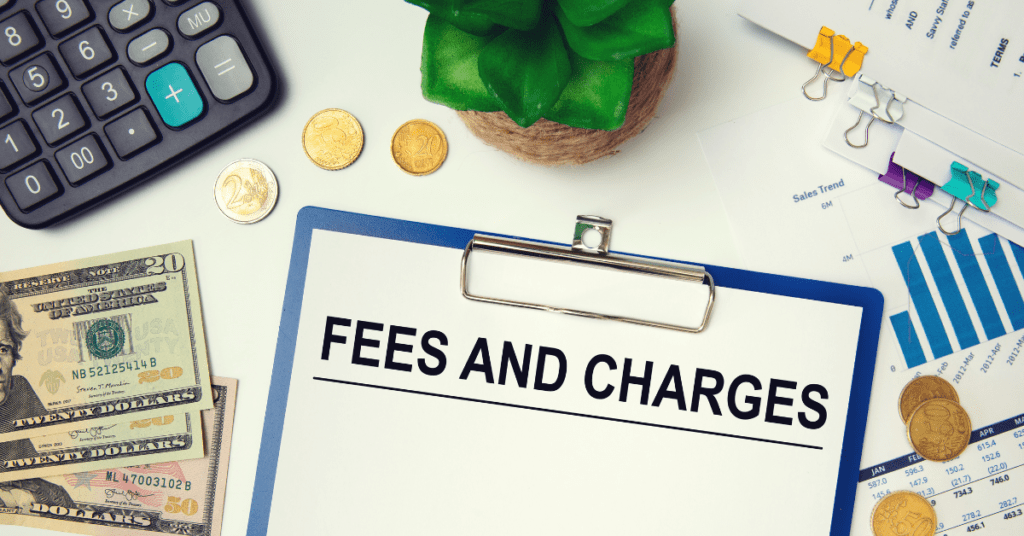
Timing is Everything
Timing is the secret sauce in many of life’s endeavours, and remortgaging is no exception. So, when is the right time to pull the trigger? Let’s dive in.
The Fixed-Rate Period: A Double-Edged Sword
The fixed-rate period of your mortgage can be both a blessing and a curse. On one hand, it offers stability in your monthly payments. On the other, it can lock you into a rate that might not be the best deal in the long term. So, when this period is about to end, it’s a good time to consider your options.
The Long-Term View
If you’re planning to stay in your home for the long term, remortgaging early could offer significant savings. Why? Because you could lock in lower rates for a longer period, providing financial stability for years to come.
The Right Time: It’s All Relative
There’s no one-size-fits-all answer to when the “best time” to remortgage is. It depends on various factors like market conditions, your financial situation, and your future plans. However, experts often recommend starting the process about six months before your current deal expires.
The Clock is Ticking
Don’t forget, the closer you get to the end of your fixed-rate period, the more urgent the need to make a decision. If you don’t act, you could end up on your lender’s standard variable rate, which is often higher than other available rates.
Your Financial Health Check
Let’s talk about something we often sweep under the rug: our financial health. I remember the first time I checked my credit score. I was nervous, palms sweaty, as if I was about to unveil a Pandora’s box.
But guess what? It wasn’t as scary as I thought, and it gave me valuable insights, especially when I was considering whether to stick with my current deal or go for a new mortgage deal.
Why Your Credit Score Matters
Your credit score is like your financial report card. Lenders use it to gauge how responsible you are with money. A high credit score can open doors to lower interest rates and better mortgage repayments terms. So, before you even think about remortgaging, make sure you know where you stand.

The Credit Report: Your Financial Mirror
Your credit report is a comprehensive record of your financial history. It includes details about your credit cards, loans, and yes, your mortgage repayments. Lenders will scrutinize this report to assess your creditworthiness (source: Finra). So, it’s crucial to ensure that everything is accurate and up-to-date.
Credit Rating: The Silent Influencer
Your credit rating is a numerical representation of your creditworthiness, and it can significantly impact the mortgage deals you’re offered. A poor rating might mean higher interest rates or even mortgage rejection. On the flip side, a good rating can get you closer to that dream deal.
Tips for Boosting Your Credit Score
- Pay Your Bills On Time: Late payments can negatively affect your score.
- Keep Credit Card Balances Low: High balances relative to your credit limit can be a red flag.
- Don’t Open New Credit Accounts: Each new account can lower your score temporarily.
FAQs: Your Burning Questions About Early Remortgaging Answered
The answer varies depending on your mortgage term and your lender's policies. Typically, you can start the remortgage process a few months before your fixed-rate deal ends. However, be mindful of your mortgage provider's specific terms.
Early repayment charges can be a real buzzkill when you're eyeing a better deal. While some mortgage lenders may offer a grace period or reduced fees, most will charge you for jumping ship before your term is up. Always read the fine print!
Yes, you can remortgage before your term ends, but it's crucial to weigh the additional costs against the potential savings. Your current mortgage deal may have clauses that make it less financially beneficial to leave early. So, do your homework!
If you've built up significant equity in your home, remortgaging early can be a way to tap into this resource. However, keep in mind that mortgage payments and other fees may apply, affecting the overall benefits of releasing equity.
Conclusion: The Final Word on Early Remortgaging
So, you’ve made it to the end of this comprehensive guide on early remortgaging. Kudos to you for taking the time to educate yourself on this complex but crucial topic. The question remains: Is it a good idea to remortgage early? Well, as with most financial decisions, the answer isn’t a straightforward yes or no.
If you’re eyeing a better rate or a better deal that could save you money in the long run, then remortgaging early might be a wise move. However, it’s essential to factor in all the costs, such as early repayment charges and legal fees, to ensure you’re actually coming out ahead.
On the flip side, if your current deal is already giving you a lower rate compared to what’s available in the market, it might be best to stick with it until a more favorable opportunity comes along.
In any case, the key takeaway here is to weigh your options carefully. Consult with a mortgage adviser, scrutinize your financial situation, and do the math to determine whether remortgaging early will indeed land you a good deal.
There you have it! Whether you’re a first-time homeowner or a seasoned property investor, understanding the ins and outs of early remortgaging can empower you to make informed decisions that align with your financial goals. So go ahead, crunch those numbers and may the odds of finding a fantastic deal be ever in your favor!
Ready to Make Your Move? Consult a Specialist Today!
You’ve armed yourself with knowledge, crunched the numbers, and weighed the pros and cons. Now, it’s time to take the next step. But remember, while this guide provides a comprehensive overview, nothing beats personalized advice tailored to your unique financial situation.
That’s where a mortgage advisor or a specialist mortgage broker comes in. These experts can guide you through the maze of mortgage options, helping you navigate the offerings from both traditional and specialist lenders. They can provide insights that generic guides and online calculators simply can’t match.
So, why go it alone when you can have a seasoned expert by your side? Reach out to a mortgage advisor or specialist mortgage broker today and take the first step toward securing the best possible deal on your remortgage.

